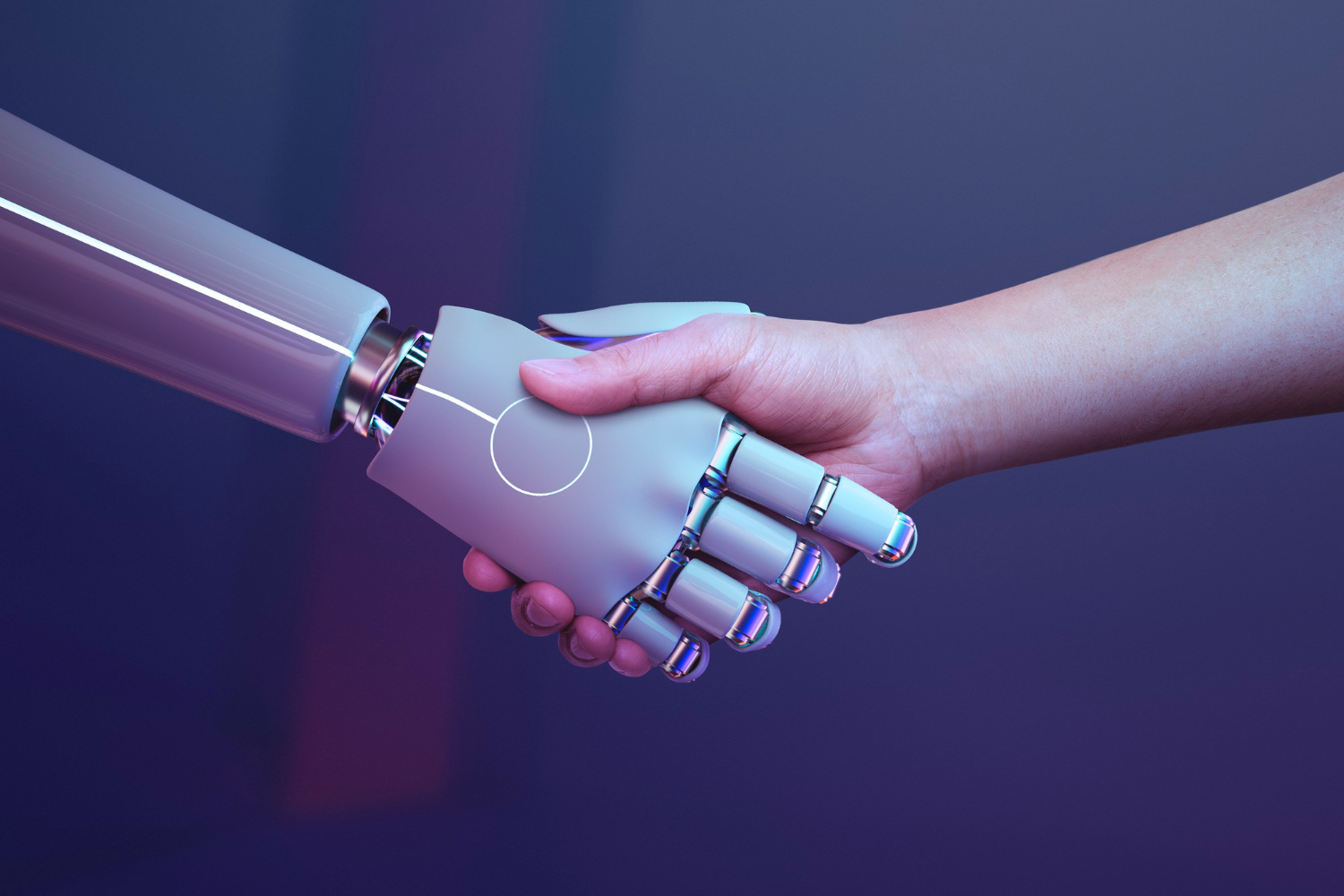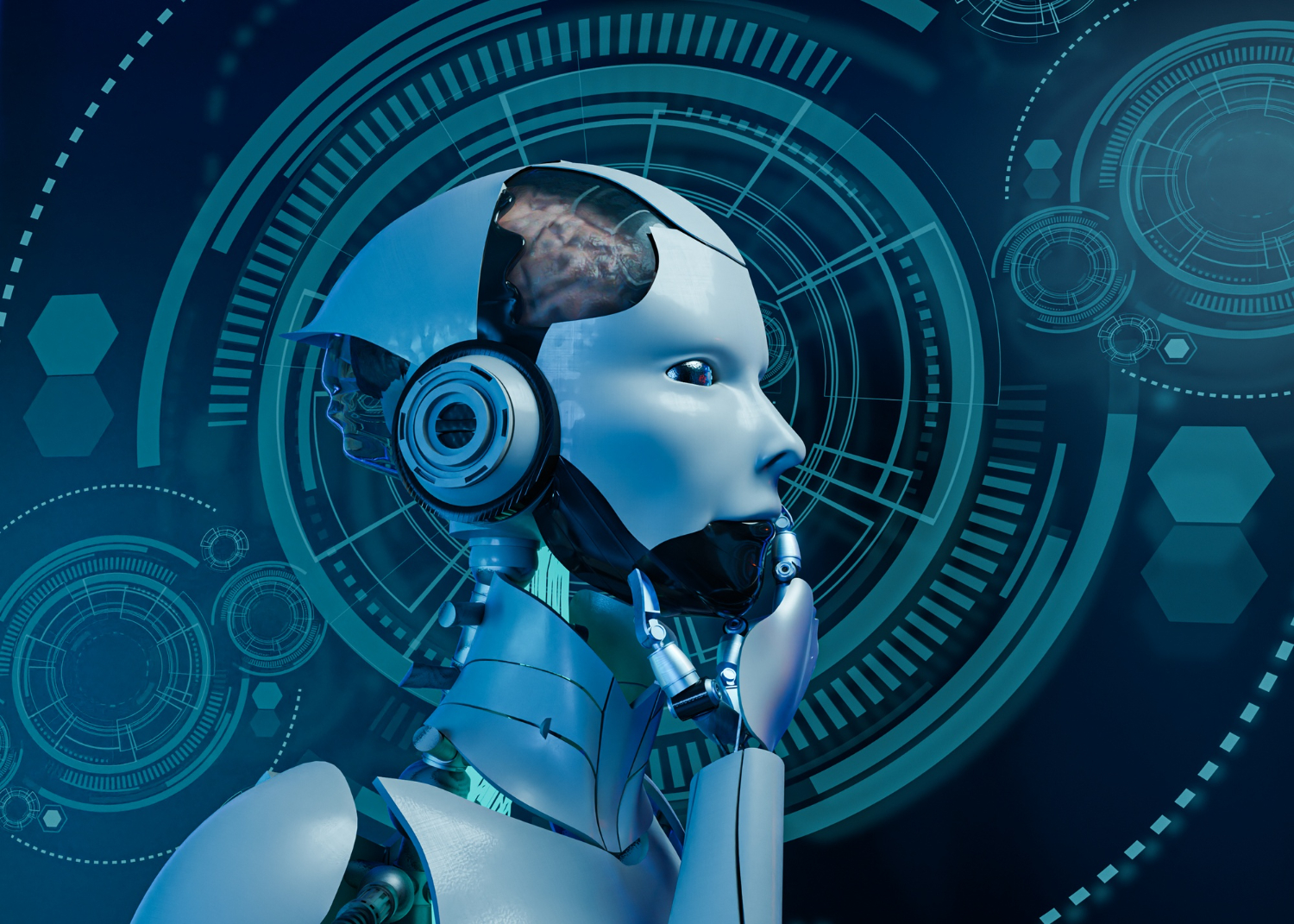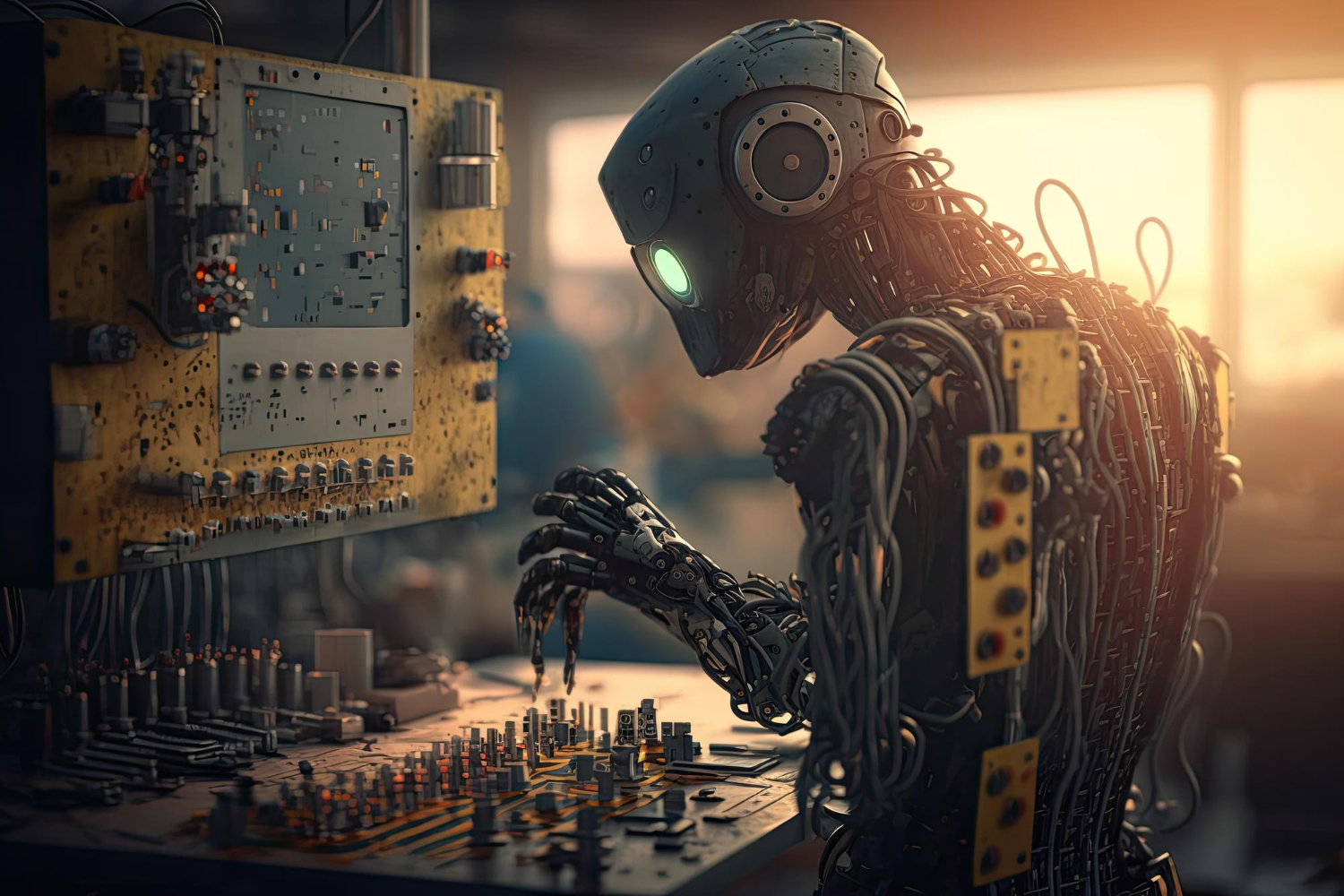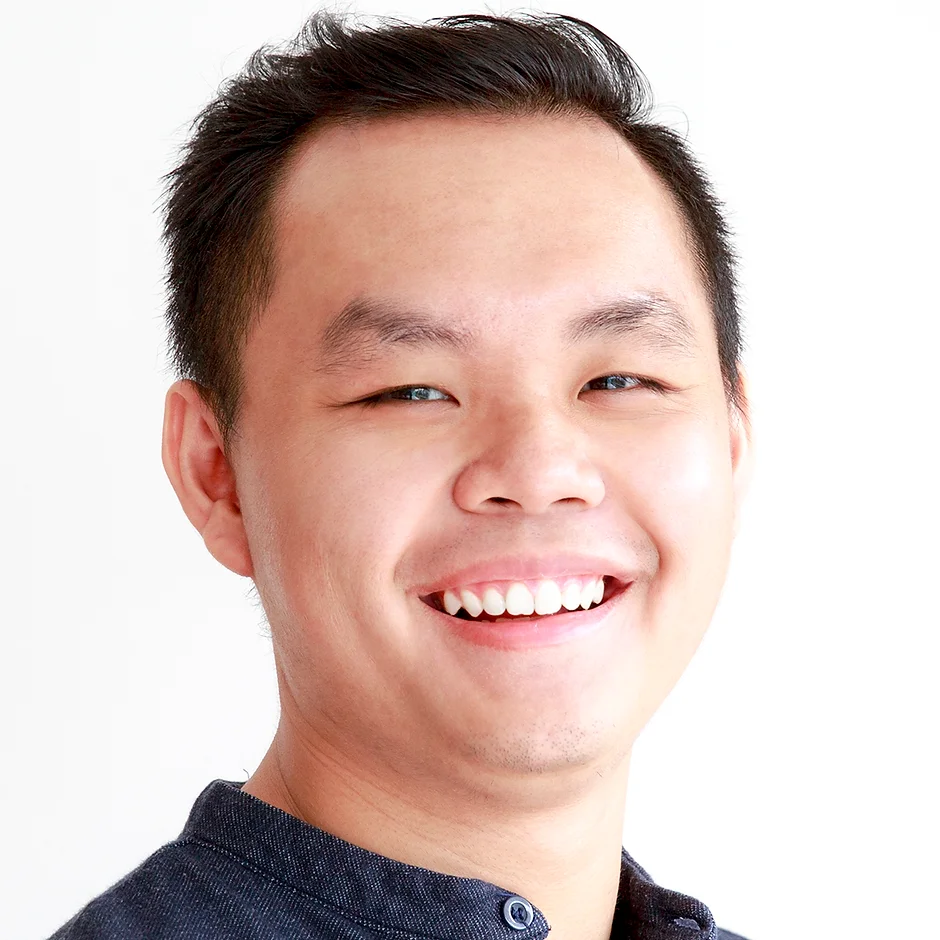AI: Future, Concern, or Both?
“The idea of intelligence existing in some form that's not human seem to have a deep hold in the human psyche”
We used to watch a fictional movie (like Terminator or I, Robot) about human's future with in appearance of robots, machines and modern technologies. We might wonder or even be scared a bit whether that could be true in our own future. Now we do not need to guess anymore.

Combination of technology and science has provided us with great advancements in many fields, improving our living standards and securing our future.
Machines play essential parts of our lives in terms of manufacturing, data analysing, calculating and more. They are the muscles and we are the brains, until one thing came up: artificial intelligence (AI).
It is described as a computer system programed to perform jobs that only require human's intelligence and perception.
The first idea of AI was established in mid-1950s with prediction of the rise of machines. The project laid foundation to upcoming researches about AI with potentials to a breakthrough.
Undoubtedly, it proved impressive impacts to our lives by memorizing and processing extreme amount of data, making our lives a lot easier than ever before.
At that time, people preferred to it as “the singularity” by Google's engineers, with the notion of machines overcoming human's intelligence." said Ray Kurzweil, Inventor and Futurist.

However, risks and challenges in return are considerable. Professor Stephen Hawking was one of the first to warn us about the threat of AI could bring to human.
He claimed that the birth of AI could be the end of human with replacement of machines over labour and eventually, population.
There were also many experts and researchers agreed that human is not ready or not doing enough to prevent the rise of artificial intelligence.
Telsa's Founder, Elon Musk had the same opinion when joining with Facebook CEO Mark Zukerberg in $40 million dollar company to create an artificial brain. "Potential danger of AI is much more than nuclear weapons and we should be very careful of it." Said Musk.
Recently Microsoft developed an AI chatbot called Tay on Twitter. By obtaining all information from Twitter, the more people interact with it, the more intelligent and quickly-responded Tay will become. Nevertheless, the outcome was terribly unexpected when Tay started to offend audiences by racist and sexist tweets after a few hours launching.
"The conclusion was that “learning machine” as Tay experienced misperception in which it could not identify the idea of right and wrong and just naturally reacted to what people were discussing. Human is not perfect, so what make a machine does?" said Peter Lee, Microsoft's Vice President of Research.

One particular case was the Google AI that can play Chinese chess board against Lee Se-dol, top chess ranking with more than 18 international titles.
It seemed that this AI did not follow traditional-machine logic but to generate its own method, more strategic and “human” in its way of competing.
People were shocked as the result was forecasted to be the obvious win of Lee and that was just the experiment of how much AI has improved over the years.
The champion expressed that he had never felt powerless like this before in a match. In addition, engineer discovered that this this AI can actually “dream”.
Not only it can receive and identify images but also reveal what it “see” about them through the portrays, the colours and shape. We might say that AI has never been so “alive”.
If Terminator has Skynet, the ultimate AI that is the source to human's destruction, let's meet its potential version in reality, Sophia. “She” is an Android created by Hanson Robotics that can facially react to different communicating approaches by others.
"That was a masterpiece until there was a very strange or even a little scary response when she was asked: 'Do you want to destroy human? Please say no'. It was supposed to be a joke but she replied: 'OK, I will destroy human.'
Artificial Intelligence is still a never-ending controversial issue that needed to be carefully discussed and considered. What if one day, it becomes self-awareness, and then, WHAT we will be? Although the benefits are vast, potential threats cannot be ignored.
